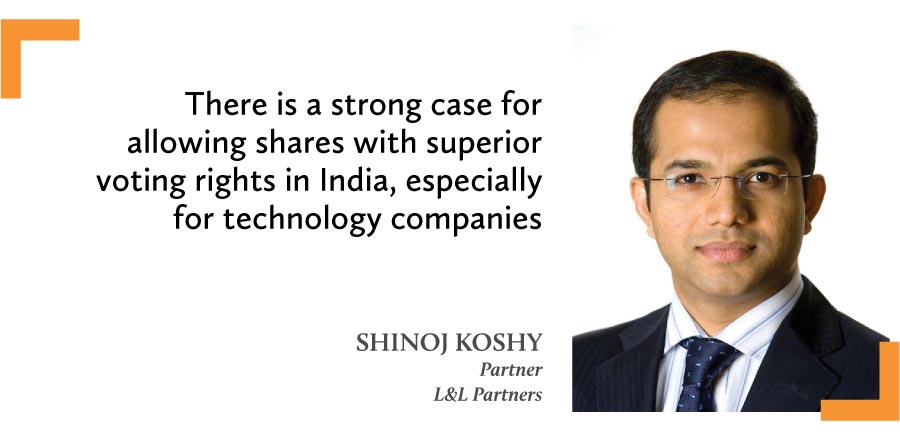SEBI’s discussion paper on the introduction of dual-class shares has divided opinions, reports Mithun Varkey
Dual-class shares is a topic that divides opinions globally. It is no different in India, which has vocal opponents and passionate supporters for it. The Securities and Exchange Board of India’s (SEBI) 20 March discussion paper on allowing dual-class shares, or differentiated voting rights (DVR) as the regulator has named it, has ignited debates among capital markets practitioners, founders and investors.
Founders love dual or multiple classes of shares because it allows them to raise equity funding without diluting control, while investors prefer the traditional one share, one vote structure that gives them a proportionate say in the business.
Though dual-class share structures have been around for a long time, they were used very rarely. In the US, which has long allowed different classes of shares, some of the early adopters of the structure were family-owned companies that sought to keep control within the family with limited shareholding. Ford Motors, which went public in 1956, was one early adopter.
Newspaper publishers also realized the value of dual-class shares in ring-fencing their editorial department from the demands of prying shareholders. Famously, the New York Times issued dual-class shares when it went public in 1969, helping the paper keep its managerial and editorial independence over the years.
However, in the past couple of decades, dual-class voting rights have taken on new life as technology entrepreneurs realized their value in helping them retain control over their businesses, even after diluting their shareholdings in multiple rounds of equity funding. Google was among the first of the tech companies to give outsized power to its founders, Facebook followed suit and SNAP, the company that owns Snapchat, took it to the next level by introducing a third class of shares with no voting rights as it went public in March 2017.
Even as more and more companies adopted multiple-class shares in the US, the rest of the world, even major financial centres such as London, Hong Kong and Singapore, fended off demand from issuers, citing concerns over corporate governance and the need for minority shareholder protection.
With rising demand from issuers and growing competition between global stock exchanges in the highly globalized financial markets, lawmakers and regulators are being forced to abandon their steadfastness and embrace change.
Hong Kong Stock Exchange made the leap in 2018 when it allowed dual-class offerings, what it calls weighted voting rights, and its regional rival Singapore Stock Exchange followed suit the same year.
It would be hard for Indian regulators to hold back domestic bourses from allowing multiple classes of shares for much longer, and SEBI has set the ball rolling with the discussion paper. Indian regulations currently do not allow companies to issue shares with superior voting rights, however, they allow listed companies to offer lower voting rights that usually come with higher dividends.
Is India ready?
“There is a strong case for allowing shares with superior voting rights in India, especially for technology companies,” says Shinoj Koshy, a New Delhi-based partner with L&L Partners. “Most technology startups have no access to debt funding because of their asset-light business model. And after multiple rounds of private equity funding, the founders are left with little control in a business they founded and built.”
You must be a
subscribersubscribersubscribersubscriber
to read this content, please
subscribesubscribesubscribesubscribe
today.
For group subscribers, please click here to access.
Interested in group subscription? Please contact us.



























